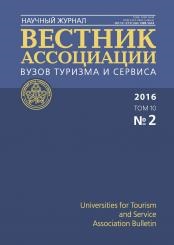The article is devoted to increasing the effectiveness of full-time corporate training. In the conditions of informa- tional society the objective need of corporations in the modern staff training based on the principles of continuing education, faces with the need to overcome the several difficulties of the traditional face-to-face corporate training. The need to improve the full-time corporate training, the effectiveness of which is one of the factors ensuring sustainable economic growth of the country makes an important and timely search of pedagogical tool, which allows, without increasing the frequency and duration of face-to-face classes, to ensure continuity of the learn- ing process, to increase the relevance and improve the quality of learning in terms of psychologically comfortable learning environment. The article substantiates the choice of the online support tool for improving professional training of specialists in the system of corporate training. Internet support is naturally integrated into the existing system of full-time training as well as improves and develops it. The opportunities provided by the Internet support of the learning process in full-time corporate training can be used in order to improve the efficiency of formation of information-theoretical and experimental component of professional competence of experts. The modular aproach allows using the same modules as elements of several training programs, developing similar competence. The results are the formation of the environment and the process of active teaching and learning on the basis of constantly updated resources, the natural motivation of students to active learning, the increasing level of assimi- lation of educational material. The article shows that the inclusion of Internet support in the process of full-time corporate training contributes to the psychological comfort of learning and satisfaction with the results, a positive effect on the level of professional competence of students.
professional training, training, full-time education, classroom training, Internet support, corporate training, e-learning
1. Akhayan A.A., Virtual educational institution. Theory of formation. St. Petersburg: Korifei, 2001, 172 p. (In Russ).
2. Akhayan A.A., On the question of technology training in the field of education: information andeducational environ- ment teaching graduate. Pis’ma v Emissiya.Offlain (The Emissia.Offline Letters), 2009, no. 10. (In Russ) Available at: http://www.emissia.org/offline/2009/1362.htm.
3. Batyshev S. Ya., Proizvodstvennaya pedagogika (Production pedagogy). Мoscow: Mashinostroenie, 1984, 572 p. (In Russ).
4. Vishnyakova S.M., Professional’noe obrazovanie: Slovar’. Klyuchevye ponyatiya, terminy, aktual’naya leksika (Professional education: Dictionary. Key notions, terms, relevant vocabulary). Мoscow: NMTs SPO,1999, 538 p. (In Russ).
5. D’yachenko M. I., Kandybovich L.A., Psikhologicheskie problemy gotovnosti k deyatel’nosti (Psychological problems of read- iness for activity). Minsk: Izd-vo BGU, 1976, 176 с. (In Russ).
6. Kir’yakova A.V., Aksiologiya obrazovaniya. Fundamental’nye issledovaniya v pedagogike: monografiya (Axiology of education. Fundamental research in pedagogy: monograph). Moscow: Dom pedagogiki. IPK GOU OGU, 2008, 578 p. (In Russ).
7. Kotrukhova R.I., Pedagogicheskie usloviya organizatsii komfortnoi uchebnoi deyatel’nosti studentov vuza: Dis. kand. ped. Nauk (Pedagogical conditions of organization the comfort of learning activities of University students: Candidate of Pedagogic’ thesis), Chelyabinsk, 2004, 274 p. (In Russ).
8. Karaman E.V., Institutsionalizatsiya korporativnogo obrazovaniya v sovremennoi Rossii: Dis. kand. sots. Nauk (The insti- tutionalization of corporate education in modern Russia: Candidate of Sociology’ thesis), Ekaterinburg, 2009, 173 p. (In Russ).
9. Kuznetsov V.V., Korporativnoe obrazovanie: ucheb. posobie dlya stud. vyssh. ucheb. Zavedenii (Corporate education: a text- book for students of higher educational institutions), Ekaterinburg: Izd-vo Ros. gos. prof. - ped. un-ta, 2010, 227 p. (In Russ).
10. Minzov A.S., Vysshee professional’noe i korporativnoe obrazovanie: paradigma vzaimnogo vlijanija (Higher professional and corporate education: a paradigm of mutual influence). Мoscow: MJeI, 2008. (In Russ).
11. Minzov A.S., Korporativnoe obrazovanie v Rossii: sushhnost’ i celi (Corporate education in Russia: the essence and purpose). Мoscow: MJeI, 2007. (In Russ).
12. Rogovkin S.V., On the premises of becoming internet support for full-time training of specialists in corporate training. Pis’ma v Emissiya.Offlain (The Emissia.Offline Letters), 2014, no. 11. (In Russ) Available at: http://www.emissia.org/of- fline/2014/2290.htm.
13. Tarakanova E.V., Vzaimodejstvie vuza i korporacii v uslovijah stanovlenija nepreryvnogo korporativnogo obrazovanija: Dis. kand. ped. Nauk (The interaction of the University and corporations in the formation of continuous corporate training: Candidate of Pedagogic’ thesis), Tyumen, 2004, 220 p. (In Russ).
14. Khutorskoi A.V., Khutorskaya L.N., Kompetentnost’ kak didakticheskoe ponjatie: soderzhanie, struktura i modeli konstru- irovanija (Competence as a didactic concept: content, structure and model design). The design and organization of inde- pendent work of students in the context of competence approach: the interuniversity collection of scientific works, 2008, no. 1. Tula: Izd-vo Tul. gos. ped. un-ta im. L.N. Tolstogo, pp. 117-137. (In Russ).
15. Knowles M., Holton E., Swanson R., The Adult Learner. San Diego: Elsevier Inc., 2011,. 378 p.





